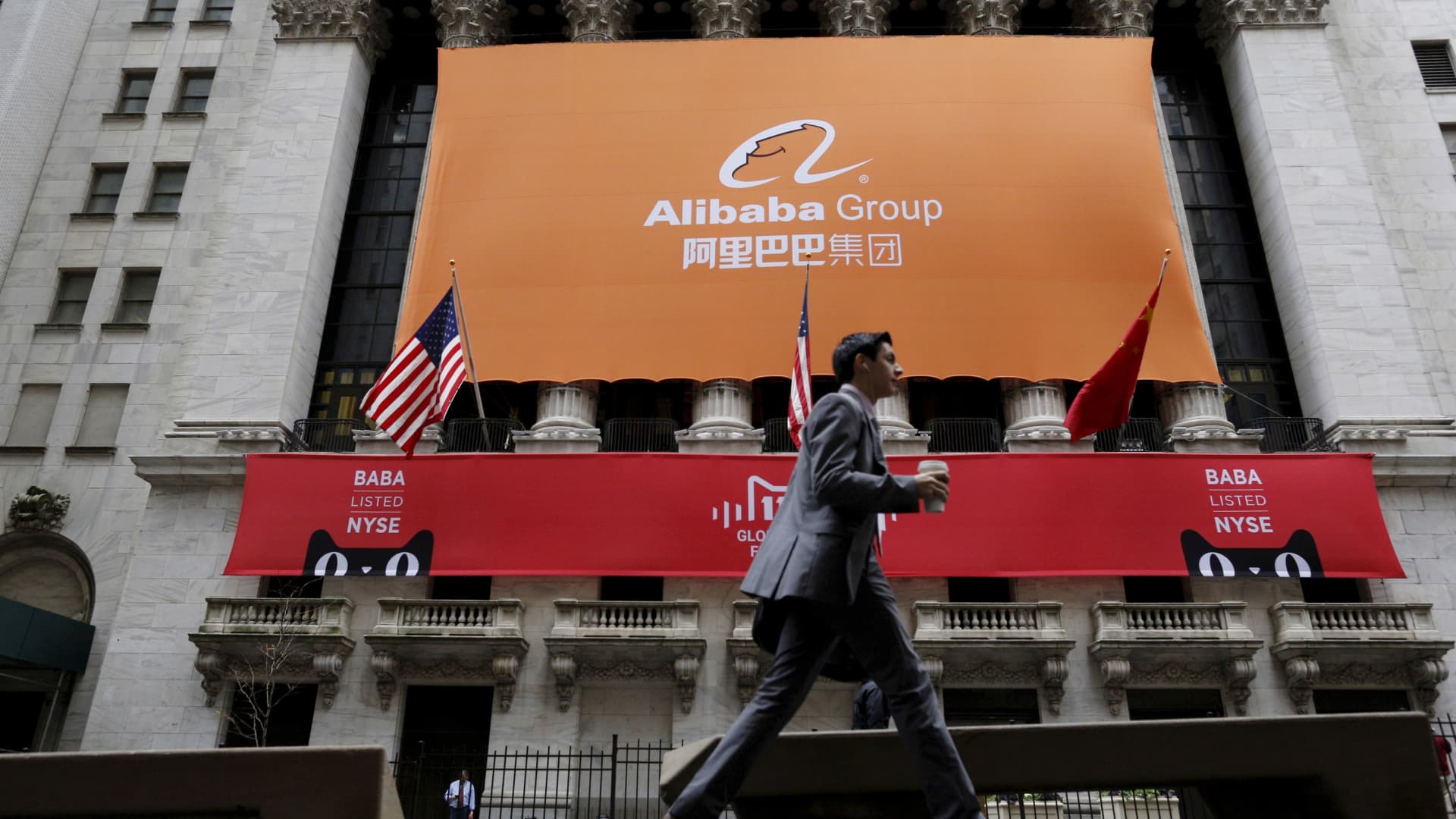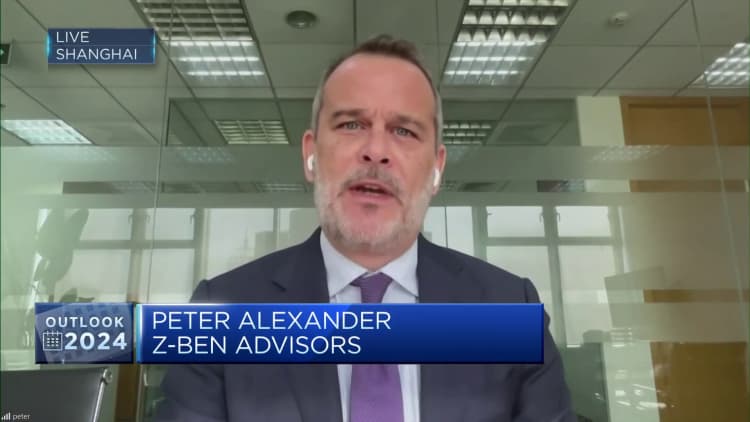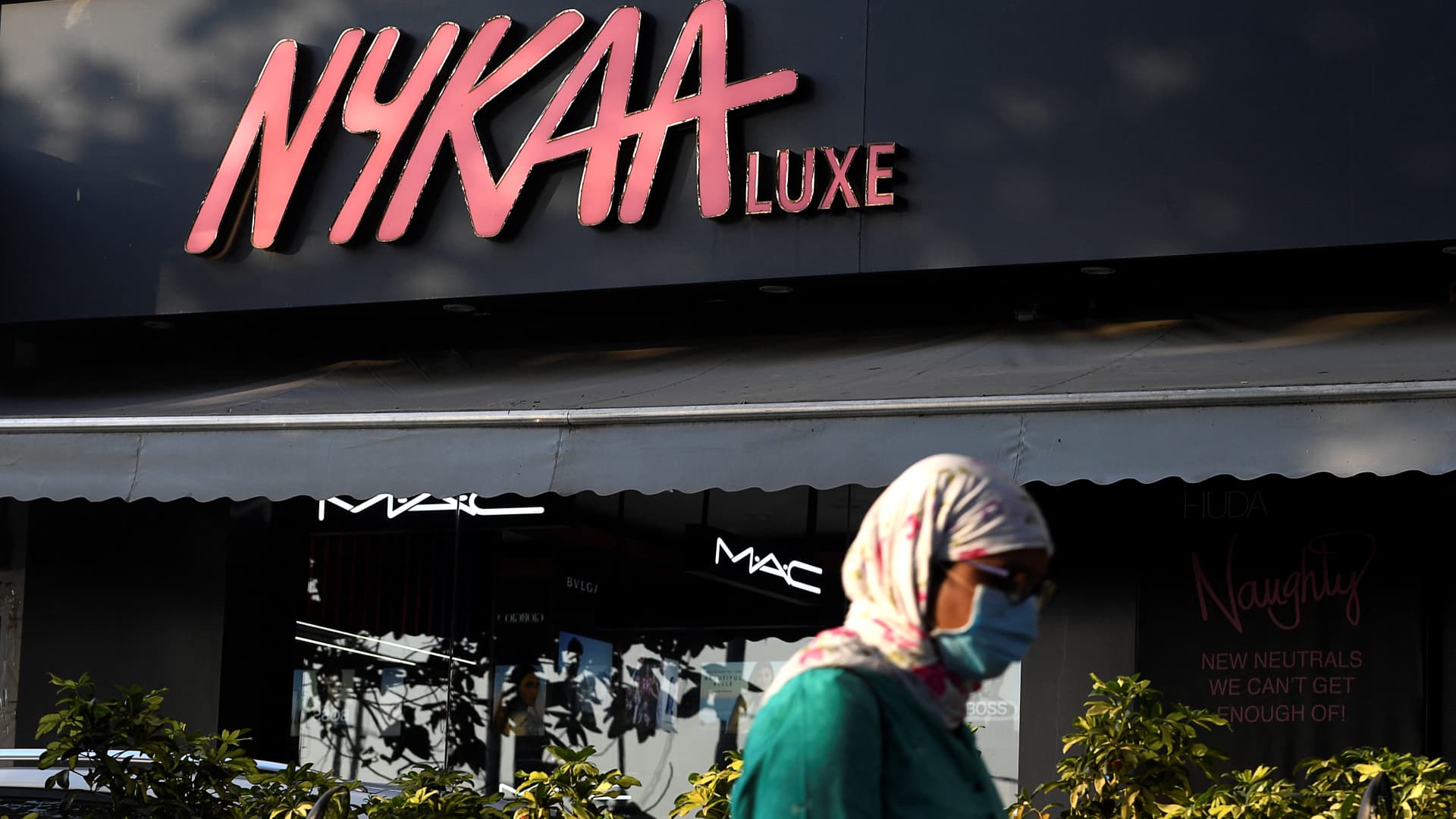Alibaba was once a Wall Street darling. After plunging 75% over three years, what's next?
It's been a tumultuous 12 months for Alibaba, casting doubt on the future of the tech giant just as artificial intelligence is taking off.

Signage for Alibaba Group Holding Ltd. covers the front facade of the New York Stock Exchange November 11, 2015.
Brendan McDermid | Reuters
BEIJING — It's been a tumultuous 12 months for Alibaba, casting doubt on the future of the tech giant just as artificial intelligence is taking off.
The company's cloud computing unit was poised to capture AI's growth for investors in a public listing, until Alibaba pulled those plans in November. The group's U.S. market value fell below that of e-commerce rival PDD, signaling struggles in the industry that had propelled Alibaba onto the global stage with the world's largest IPO in 2014.
On the political front, Alibaba was a poster child for China's crackdown on internet tech companies — receiving a record fine of $2.8 billion for alleged monopolistic behavior in 2021. Slowing economic growth hasn't helped its business either.
But the scrapped cloud IPO plans and management shake-up in the last year reflect bigger problems for a company that has served as a bellwether for foreign investors in China. Alibaba's stock has plunged to below $77 a share, down by 75% from more than $300 in 2020.
"I think there are some deep internal issues. And so there must now be ... a clear internal fight between how they're going to get out of this because they're really slipping," said Duncan Clark, an early advisor to Alibaba and now chairman of Beijing-based investment advisor BDA.
"The core to me is their eroding market position, what they are doing in terms of video, livestream and how they respond to Douyin, plus how they manage all these disparate groups and all the management turmoil," Clark said. ”It's a mess basically."

Douyin, the domestic Chinese version of ByteDance's TikTok, has taken off in China as a platform for the surging livestream sales industry. Chinese consumers, who are increasingly hunting for bargains, have also turned to bargain hunting on Pinduoduo.
Founded in 1999 by Jack Ma, Alibaba is a far older company than ByteDance or PDD.
"Personnel-wise there are people that are leaving the company, they may feel the company is so big and bureaucratic, that is a reality," said Brian Wong, former Alibaba Group vice president and author of "The Tao of Alibaba," published in November 2022.
Management shake-up centered on cloud
Are they too big? That was the charge from the government before, but now the question is are they nimble enough, are they able to compete enough in the marketplace?
Duncan Clark
BDA, chairman
"Are they too big? That was the charge from the government before, but now the question is are they nimble enough, are they able to compete enough in the marketplace?" he said. Clark also wrote "Alibaba: The House That Jack Ma Built," published in 2016.
Cloud competition from Huawei
Alibaba has been an industry leader in the cloud business.
The company remained the largest player in China's cloud market in the third quarter, followed by Huawei and Tencent, according to Canalys.
But the research firm predicted that Huawei's market share will gradually increase, said analyst Yi Zhang.
She pointed out the telecommunications company started in 2022 to focus on improving its engagement with business partners — via a strategy of developing an ecosystem of experts and developers. In contrast, she said Alibaba's and Tencent's cloud units only started pursuing a similar strategy in 2023.
Such an approach can pay off in a slowing cloud services market that Canalys said is "relying heavily on government and state-owned enterprises to drive growth."
Chinese business news site 36Kr reported in January last year, citing sources, that government customers closed cloud deals with Huawei, after almost buying from Alibaba.
Alibaba and Huawei did not respond to a request for comment on this story. Alibaba in November blamed U.S. restrictions on chip sales to China for the decision to pull the cloud IPO.
Read more about China from CNBC Pro
Alibaba said its cloud business revenue grew by just 2% year on year in the quarter ended Sept. 30. Since the quarter ended June, the company has included cloud revenue from business with other parts of Alibaba Group.
BDA's Clark said his firm's research found that Alibaba tried to grow its cloud business by taking away big clients from third-party resellers. Those resellers were other companies that had acted as distributors or agents for Alibaba cloud and received commissions.
"It may be like a botched go-to-market strategy, or reseller strategy, because a lot of those resellers ... became very upset and some of them are now going to work with other players," Clark said. "They were supposed to be able to focus on smaller companies rather than the big ones that were taken away but that didn't materialize. It's a very tough market.“
Global IPO market slump
Alibaba still plans to list its Cainiao logistics business, and its Freshippo grocery store chain. But it's been a tough IPO market, especially for Chinese companies wanting to list overseas.
The Information reported in November, citing sources, that an international investment firm was only willing to value Alibaba's cloud unit at less than $25 billion, far below the $40 billion the company had wanted.
Alibaba "has a massive base to work from in terms of customers and data, and that is a treasure trove of any AI operation. They still have some amazing minds in the organization," former executive Wong said.
"I think all the raw materials are there, it's question of how do they [execute] this in a time of a critical moment,” he said, noting that to him, Alibaba is "getting its house in order to prepare for the next big thing."

 UsenB
UsenB 































